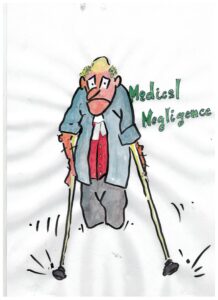Over 155,000 cars with deadly Takata airbags still on the roads says ACCC
- 2020-08-05
- By Dr Will Higgs PhD, Barrister
- Posted in Products Liability
According to ACCC’s Product Safety Australia (31 July 2020 https://www.productsafety.gov.au/news/over-155000-cars-with-deadly-takata-airbags-still-on-the-roads) at least 155,000 vehicles containing potentially deadly Takata airbags are still on our roads and with less than six months before manufacturers are expected to complete their recall of these vehicles, the ACCC is urging consumers to check if their vehicles are affected and if so book them in for replacement.
According to the latest ACCC figures on the compulsory recall, about 180,000 airbags (4.4 per cent of all airbags subject to this recall) in more than 155,000 vehicles (5.1 per cent of affected vehicles) are yet to be replaced.
“These airbags are extremely dangerous and have the potential to misdeploy, sending sharp metal fragments into the vehicle cabin at high speed, with the potential to kill or seriously injure the occupants,” ACCC Deputy Chair Delia Rickard said.
“It is essential that you do not ignore or delay responding to notices about the recalls from your manufacturer. If your vehicle is under active recall, please act now to arrange for a free replacement.”
More than 6,000 of those vehicles are so dangerous that they should not be driven at all. These vehicles contain the highest risk ‘critical’ airbags, and states and territories will be de-registering them to take them off our roads. Some states and territories are also preventing re-registration of unregistered vehicles unless there is evidence that the affected airbag has been replaced.
“If your vehicle contains a ‘critical’ airbag, you should stop driving it immediately and contact the manufacturer to arrange for it to be towed or a technician to be sent to you so the airbag can be replaced,” Ms Rickard said.
Consumers who imported a vehicle directly into Australia from overseas are urged to contact the vehicle manufacturer’s Australian office to see if it is affected by the recall, and those who imported a vehicle using a business in Australia should check this with the business, and arrange airbag replacements if needed.
In the past three months, more than 40,000 vehicles have had their airbags replaced despite the pandemic, and a further 2,250 vehicles have been identified as no longer on the road. On average, more than 3,100 airbags have been replaced each day since the compulsory recall began in March 2018.
“There are only six months left for manufacturers to meet their replacement obligations, and while the compulsory recall is progressing well, it is important to get these remaining deadly airbags off our roads,” Ms Rickard said.
“Checking ismyairbagsafe.com.au to see if your vehicle is affected, and getting the airbag replaced if it is, is an essential step to preventing more deaths and injuries.”
Takata fast facts
As at 30 June 2020:
In total about 3.66 million airbag inflators (89.2%) have now been rectified in about 2.68 million vehicles (87.8%).
This leaves 180,869 airbag inflators (4.4%) in 155,351 vehicles (5.1%) remaining for replacement.
An additional 262,725 airbags (6.4%) in 218,393 vehicles (7.1%) were reported by suppliers as unrepairable (written off, unregistered for more than two years, exported, scrapped, stolen, or modified and unable to have the airbag replaced).
There are 1,334 vehicles with critical-alpha airbags and 4,718 vehicles with critical non-alpha airbags outstanding for replacement.
Vehicles with critical airbags should not be driven, and drivers are entitled to have their vehicles towed to the dealership to have the airbag replaced for free.
Notes to editors
The Takata airbag recall is the world’s largest automotive recall, affecting an estimated 100 million vehicles globally.
It is the most significant compulsory recall in Australia’s history, with over four million affected Takata airbag inflators and involving more than three million vehicle recalls.
Takata airbags affected by the compulsory recall use a chemical called phase-stabilised ammonium nitrate (PSAN). The ACCC’s investigation concluded that certain types of Takata PSAN airbags have a design defect. The defect may cause the airbag to deploy with too much explosive force so that sharp metal fragments shoot out and hit vehicle occupants, potentially injuring or killing them.
In addition to the compulsory recall of vehicles fitted with Takata PSAN airbags, eight vehicle manufacturers have also issued voluntary recalls for some vehicles manufactured between 1996 and 2000, which may have been fitted with a different type of faulty Takata airbag, being a NADI airbag. The Department of Infrastructure, Transport, Regional Development and Communications monitors the NADI voluntary recalls.
SEARCH BLOG POSTS
LATEST BLOG POSTS
- Updated product safety mandatory reporting guidance for suppliers now available
- Pleading fraud – cause and effect is essential
- Does the Trustee’s right of indemnity have priority over the right of beneficiaries in relation to assets?
- Rules of war (in a nutshell) | The Laws Of War
- MH370 Final Report
Past Blog Posts
- December 2021
- September 2021
- August 2021
- May 2021
- April 2021
- March 2021
- August 2020
- February 2020
- September 2019
- February 2019
- December 2018
- July 2018
- April 2018
- December 2017
- May 2017
- February 2017
- December 2016
- November 2016
- October 2016
- September 2016
- August 2016
- April 2016
- March 2016
- October 2015
- September 2015
- August 2015
- May 2014
- April 2014
- March 2014
- January 2014
Categories
- Appeals
- Artificial Intelligence
- Aviation law
- Banking and Finance Law
- Blogs
- Civil Liability Act
- Class Actions
- Coding for lawyers
- common law
- Consumer Claims (TPA)
- Contract Law
- Contractual Interpretation
- Criminal law
- Deeds
- Docassemble
- duty of care
- Engineering Law
- Equity
- Evidence
- Exclusion Clauses
- Execution of documents
- Expert Witness
- featured
- Financial Services
- Fraud
- Fundraising (Chapter 6D)
- General comment
- Home Building Law
- Insurance
- Legal drafting
- Local Court
- Medical Negligence
- MH370
- Motor Accidents
- Negligence
- Occupiers negligence
- Other
- Personal Injury
- Personal Property Securities (PPSA)
- Pleading
- Practice & Procedure
- Products Liability
- Property
- Real Property
- Reasons for a decision
- Securitisation
- Security (Mortgages & Charges)
- Sentencing
- Swaps & Derivatives
- Teaching
- Transactional Law
- Transfer of financial assets in transactions
- Trusts & Trustee Law
- Uncategorized
- War and Weaponry
- Witnesses
SEARCH BLOG POSTS
LATEST BLOG POSTS
- Updated product safety mandatory reporting guidance for suppliers now available
- Pleading fraud – cause and effect is essential
- Does the Trustee’s right of indemnity have priority over the right of beneficiaries in relation to assets?
- Rules of war (in a nutshell) | The Laws Of War
- MH370 Final Report
Past Blog Posts
- December 2021
- September 2021
- August 2021
- May 2021
- April 2021
- March 2021
- August 2020
- February 2020
- September 2019
- February 2019
- December 2018
- July 2018
- April 2018
- December 2017
- May 2017
- February 2017
- December 2016
- November 2016
- October 2016
- September 2016
- August 2016
- April 2016
- March 2016
- October 2015
- September 2015
- August 2015
- May 2014
- April 2014
- March 2014
- January 2014
Categories
- Appeals
- Artificial Intelligence
- Aviation law
- Banking and Finance Law
- Blogs
- Civil Liability Act
- Class Actions
- Coding for lawyers
- common law
- Consumer Claims (TPA)
- Contract Law
- Contractual Interpretation
- Criminal law
- Deeds
- Docassemble
- duty of care
- Engineering Law
- Equity
- Evidence
- Exclusion Clauses
- Execution of documents
- Expert Witness
- featured
- Financial Services
- Fraud
- Fundraising (Chapter 6D)
- General comment
- Home Building Law
- Insurance
- Legal drafting
- Local Court
- Medical Negligence
- MH370
- Motor Accidents
- Negligence
- Occupiers negligence
- Other
- Personal Injury
- Personal Property Securities (PPSA)
- Pleading
- Practice & Procedure
- Products Liability
- Property
- Real Property
- Reasons for a decision
- Securitisation
- Security (Mortgages & Charges)
- Sentencing
- Swaps & Derivatives
- Teaching
- Transactional Law
- Transfer of financial assets in transactions
- Trusts & Trustee Law
- Uncategorized
- War and Weaponry
- Witnesses




